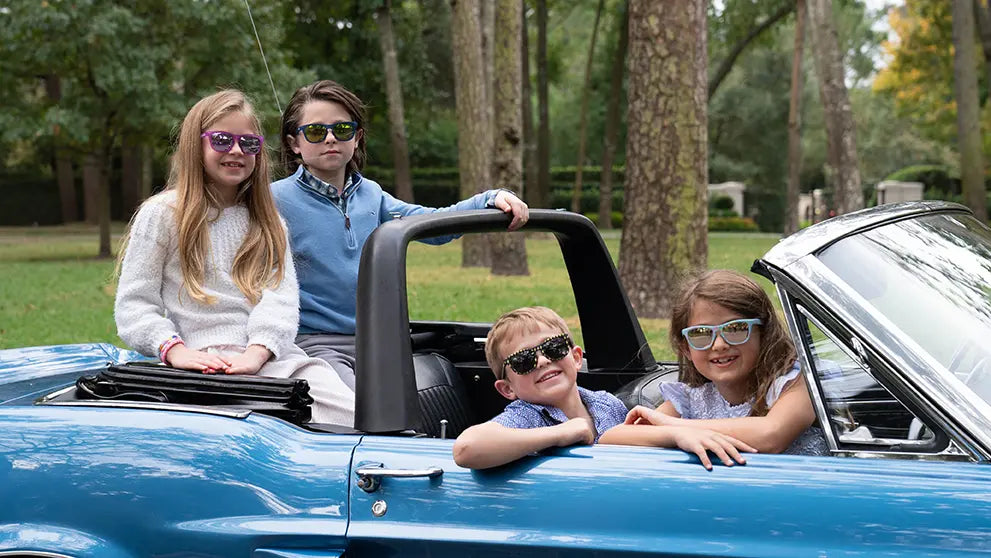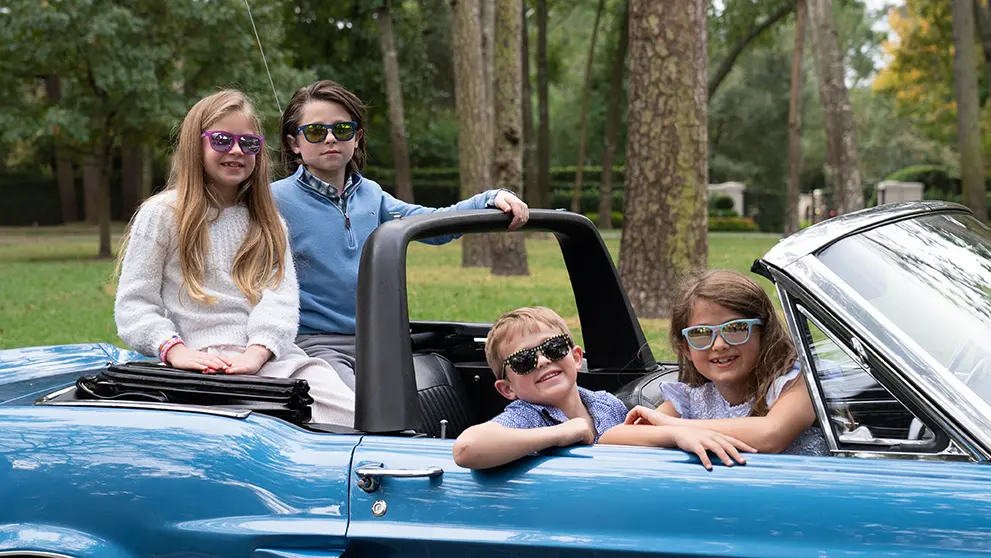Wondering if it’s suitable for children to sport sunglasses throughout the year? Allow us to guide you through the benefits and considerations of allowing kids to wear sunglasses regardless of the season.
Choosing the Right Children’s Sunglasses
When selecting children’s sunglasses, opt for pairs that are specifically designed for kids. Look for durable frames that can withstand the wear and tear of active youngsters. Additionally, choose sunglasses that provide 100% UV protection to shield their eyes from harmful sun rays.
Consider the size and fit of the sunglasses to ensure they stay comfortably on your child’s face. Frames that are too tight may cause discomfort, while loose frames can easily slip off during playtime.
Explore sunglasses with shatterproof lenses to minimize the risk of breakage and potential eye injuries. Kids are often engaged in various activities, so having durable lenses is crucial for their safety.
Encourage your child to pick sunglasses that they find stylish and appealing. By involving them in the selection process, they are more likely to wear the sunglasses consistently, fostering good eye protection habits.
Benefits of Children Wearing Sunglasses
Children can benefit significantly from wearing sunglasses year-round. Sunglasses protect their eyes from harmful UV rays that can lead to various eye conditions, including cataracts and macular degeneration later in life.
By wearing sunglasses, kids can also reduce eye strain and discomfort caused by bright sunlight. This is especially important during outdoor activities such as sports, beach outings, and hikes.
Sunglasses help to prevent the development of photokeratitis, a painful eye condition similar to a sunburn on the eye’s surface. Children who spend extended periods in the sun are particularly vulnerable to this condition.
Not only do sunglasses offer eye protection, but they also shield the delicate skin around the eyes from sun damage, lowering the risk of premature aging and skin cancer in the future.
By instilling the habit of wearing sunglasses early on, children are more likely to continue protecting their eyes as adults, promoting lifelong eye health and well-being.
Ensuring Proper Fit and UV Protection
Proper fit is essential when it comes to children’s sunglasses. Ill-fitting frames can cause discomfort and may not provide adequate eye coverage. Ensure the sunglasses sit well on their face without sliding down or pinching.
Always check that the sunglasses offer 100% UV protection. Exposure to UV rays without proper eye protection can lead to both short-term and long-term eye damage. Look for labels indicating the level of UV protection provided.
Regularly inspect your child’s sunglasses for any scratches, damages, or signs of wear. Replace them when needed to maintain optimal eye protection. Children’s eyes are sensitive and require proper care and attention.
Encourage your child to wear their sunglasses consistently, even on cloudy days. UV rays can penetrate through clouds, so eye protection is necessary year-round, regardless of the weather.
Maintaining and Replacing Children’s Sunglasses
Teach your child how to care for their sunglasses properly. Show them how to clean the lenses with a microfiber cloth and store the sunglasses in a protective case when not in use.
Keep spare sunglasses handy in case of loss or damage. Having an extra pair ensures that your child’s eyes are always protected, especially during outdoor activities and travel.
Regularly check the fit of the sunglasses as your child grows. Children’s facial features change, so it’s important to ensure the sunglasses provide adequate coverage and protection as they get older.
Stay informed about advancements in children’s eyewear technology. New innovations in lens materials and UV protection can enhance the safety and comfort of your child’s sunglasses.
Safeguarding Your Child’s Eyes
Ensure your children’s eyes are protected year-round with high-quality sunglasses that provide the necessary UV protection. Remember, investing in their eye health is an investment in their overall well-being.




